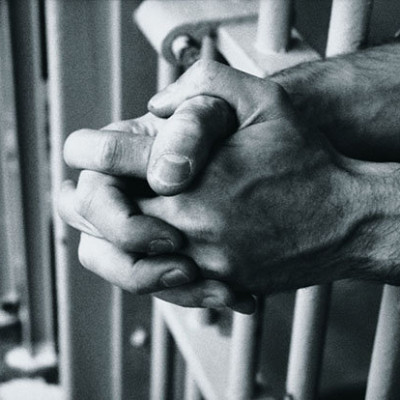Author’s Note: I wrote about Greg Wilhoit in Tuesday’s (2/25/14) Tulsa World. There were several things that I didn’t use from the interview and I realized they might make for a good blog post.
It was a mere 100-foot walk from Greg Wilhoit’s cell to the death chamber.
When he first arrived, more than a decade had passed since anyone had gone there.
But that was soon to change. One night in 1990, with Wilhoit looking on from his cell, one of his fellow inmates made the walk — the first to do so since Oklahoma lifted its moratorium on executions.
Wilhoit knew, soon, if the state had its way, he’d make that walk as well.
Somehow, clinging to the hope that his innocence would ultimately be established, he didn’t go crazy.
Much of the credit went to his family. His parents and sisters stood by him throughout the ordeal.
Frequent visitors to the state penitentiary, “we definitely weren’t your typical death row family,” Betsy Moore of Tulsa, Wilhoit’s sister, told me earlier this week.
They had their own way of dealing with it, she said, and “it included lots of laughter. We had many great death row stories.”
“I hope that doesn’t sound bad. I wouldn’t wish for anyone to ever have to go through it.”
One of the exonerated former inmates featured in John Grisham’s nonfiction work “An Innocent Man,” Greg Wilhoit died Feb. 14 in Sacramento, Calif., at age 59.
Altogether the former Tulsan spent five years — 1988 to 1993 — on Oklahoma’s death row for the murder of his wife before finally, new evidence led to his being freed.
When it did, the family took it as an answer to prayer.
That was the other key, they told me, to enduring.
Said Moore, “We are very much a family of faith. Throughout it, we believed, and Greg believed, that somehow this would serve a higher purpose.”
The higher purpose didn’t become clear for some time. And truthfully, they admit, they don’t feel even now like they completely grasp it.
But at least part of it has been revealed, they believe, in the mission he undertook.
Wilhoit went on to become a nationally known anti-death penalty advocate, appearing at rallies and on television.
A former death penalty supporter, he came to oppose it, he said, not because he was almost a victim of it, but, rather, because he decided it wasn’t consistent with the principles of his faith.
Regardless of where you stand on capital punishment, Greg Wilhoit’s story is great testimony.
Although he understood he had to forgive to be truly free, for a long time after his release he was angry with the system.
But he had made his peace with God long before, while still in prison.
His other sister, Nancy Vollertsen, told me: “Greg said God was perfectly capable of deciding who lived and who died and when, and he was content to let God make those decisions.”
Would that we could all know that kind of surrender to God’s will.
I suspect, though, for most of us, it would take an experience like Wilhoit’s to bring it about.


One Comment
My thoughts and prayers are with this family. Thank you Tim.
Commenting has been turned off.